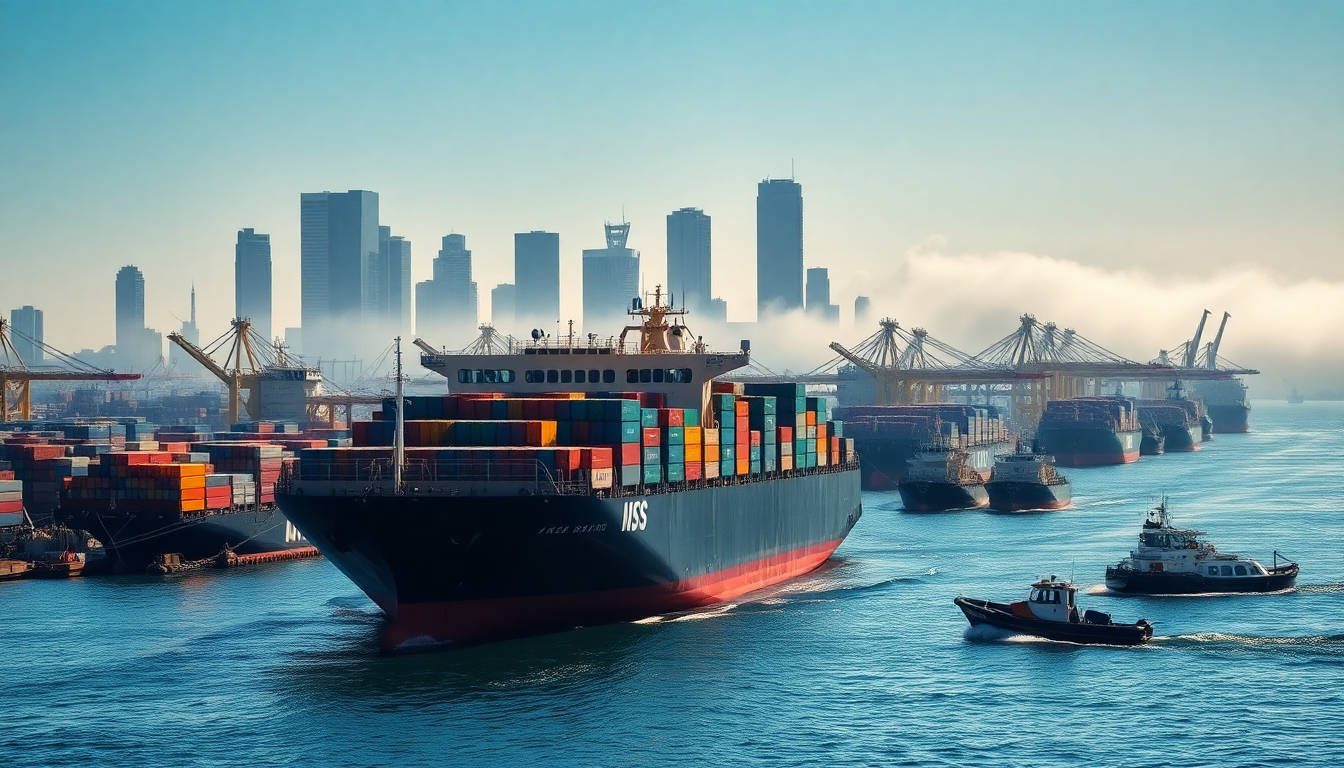Table of Contents
As awareness of climate change skyrockets, the international shipping industry finds itself at a pivotal moment. Brazil, a leading advocate for the proposed Net-Zero Framework by the International Maritime Organization (IMO), is actively seeking China’s support ahead of a crucial vote in October.
This ambitious plan aims to drastically cut greenhouse gas emissions from maritime activities—a vital step in the global fight against climate change. But what does this mean for the environment and the economies of countries that rely heavily on shipping?
Brazil’s Position and China’s Influence
Brazil’s backing of the Net-Zero Framework highlights its commitment to tackling climate change through global collaboration. Ports and Airports Minister Sílvio Filho recently underscored the significance of China’s role in shaping the plan’s implementation. As one of the heavyweight players in global shipping, China’s perspective on this issue could significantly sway the framework’s future.
However, Brazil is still left in the dark regarding China’s stance, creating a tangled web of negotiations, especially considering the differing views of other major economies, like the United States.
The Trump administration had its reservations about environmental regulations, leading to a potential clash with nations pushing for stricter climate measures.
This friction could complicate Brazil’s efforts to rally support from allies in the quest for a unified global approach to reducing shipping emissions. How will Brazil navigate these challenges while keeping its environmental goals intact?
Key Components of the Net-Zero Framework
The proposed framework provides a clear roadmap for slashing emissions from international shipping. Starting in 2027, large ocean-going vessels that don’t meet fuel efficiency standards will be required to pay for their carbon emissions. Specifically, ships that go beyond the base-level target will face a hefty fee of $380 per tonne of greenhouse gases, calculated in carbon dioxide equivalent.
On the flip side, vessels that fall short of the stricter Direct Compliance target will incur a lower fee of $100 per tonne.
This revenue stream is designed to encourage the adoption of cleaner fuels and foster a “just transition.” But what exactly does a just transition mean? It’s about ensuring that developing countries receive support in implementing new green technologies, so the shift towards sustainability doesn’t deepen existing inequalities. Brazil’s participation in this initiative isn’t just about doing the right thing environmentally; it’s also about seizing economic opportunities and asserting its leadership on the global stage.
The Road Ahead: Implications for Global Shipping
While the road to implementing the Net-Zero Framework is littered with obstacles, it also opens up exciting opportunities. As countries discuss emissions reduction, the shipping industry will need to adapt to new regulations. Companies that are willing to innovate and invest in cleaner technologies could find themselves at a competitive advantage down the line. Isn’t it fascinating how the future of shipping could hinge on these decisions?
For Brazil, winning China’s backing is crucial for the success of this initiative. It could inspire further commitments from other nations, paving the way for a more comprehensive approach to cutting shipping emissions. The upcoming vote is set to be a game-changer, with the potential to redefine the dynamics of international shipping and its impact on global emissions.
In conclusion, as Brazil navigates this complex landscape, its commitment to environmental sustainability and international collaboration will be key. The outcome of the October vote might just signal a new chapter for the shipping industry—one that balances economic viability with environmental responsibility. Are we ready for this transformation?





